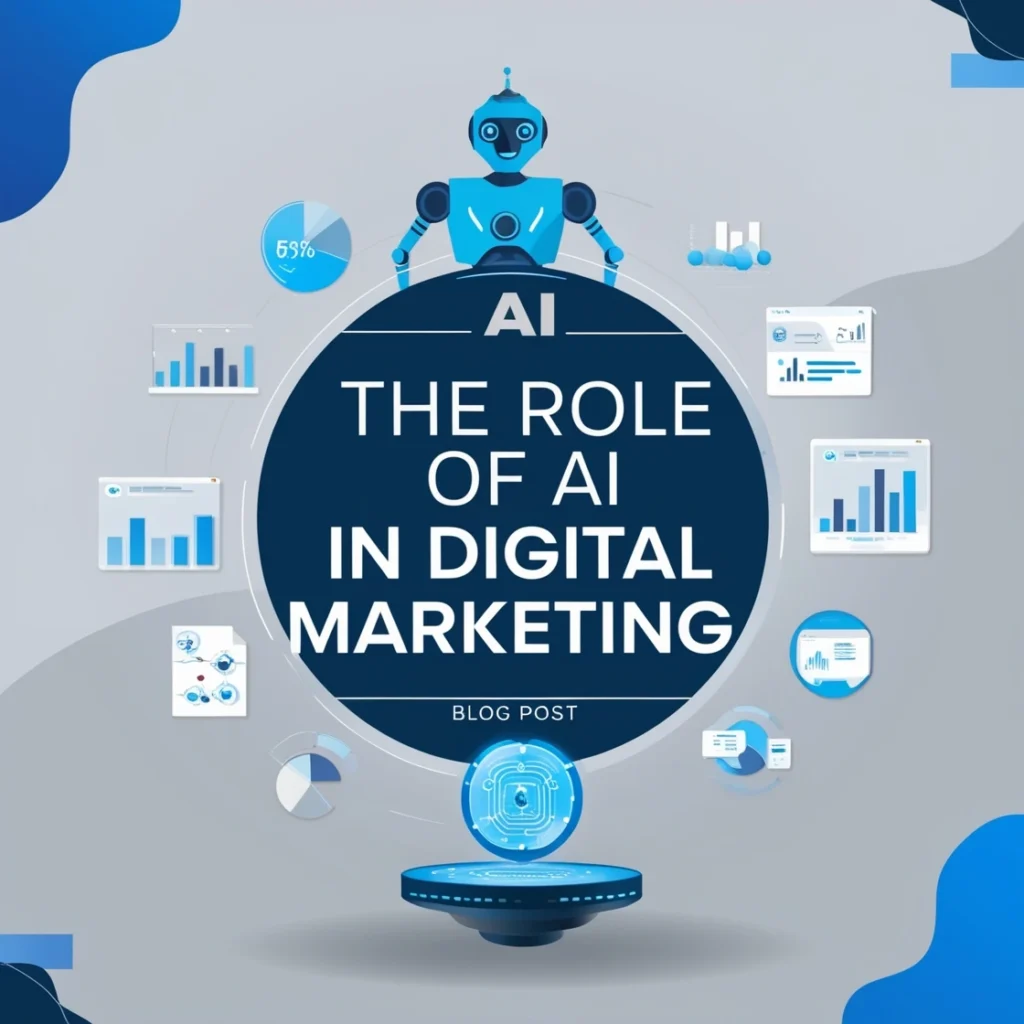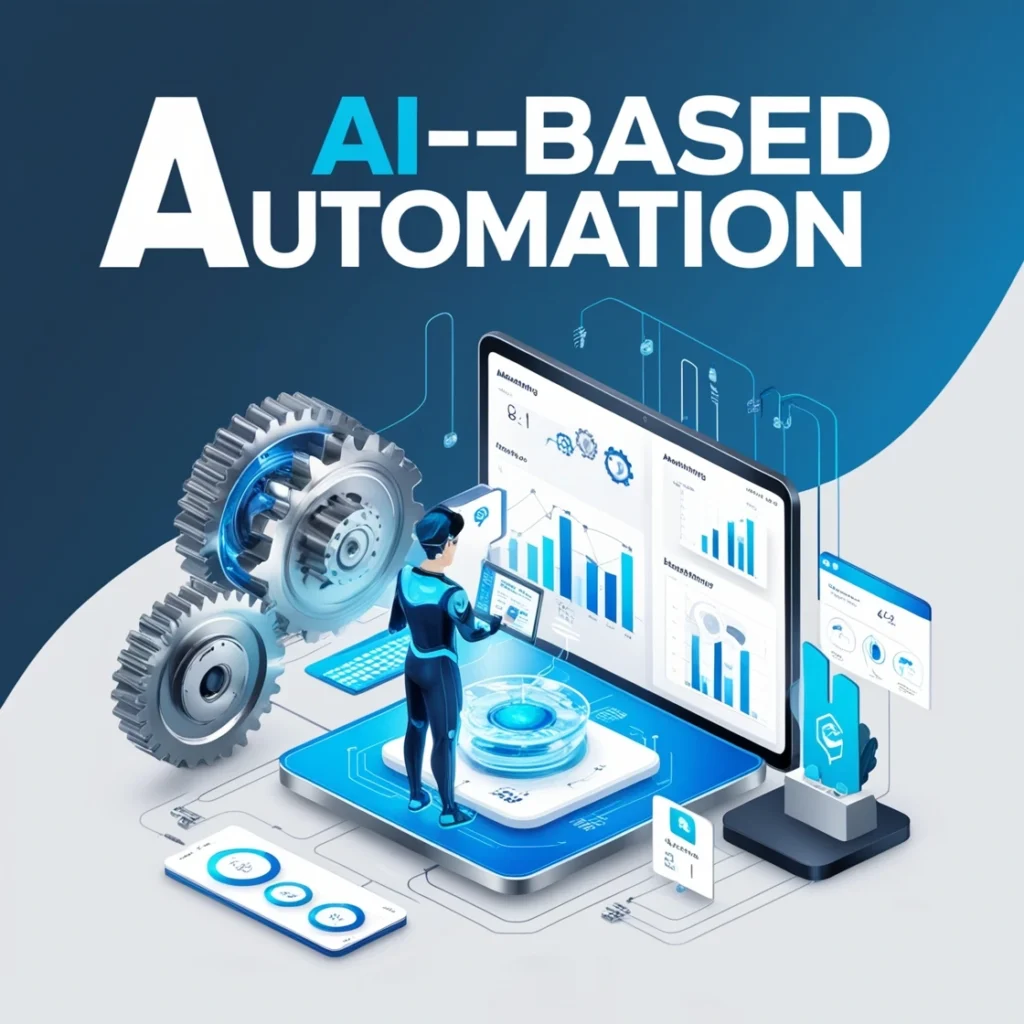
It is playing a revolutionary role across industries and is very deep for marketing. AI technologies are transforming the way businesses interact with their audiences, streamline processes, and improve marketing strategies. From personalized recommendations to predictive analytics, AI tools help brands create more efficient and targeted marketing campaigns.
Here, we would discuss how AI is changing the shape of digital marketing and how it benefits, how these entities can be used by businesses to grow and improve customer engagement.
The Growing Importance of AI in Digital Marketing
Artificial intelligence gives machines abilities that are required from human intelligence; these include learning, problem-solving and making decisions. In marketing, AI-based solutions allow companies to deal with large datasets so it would enable predicting customer behavior and automation of certain tasks, which contributes to the effectiveness of marketing efforts.
With so much online content created these days, AI in digital marketing helps businesses cut through the noise, get to the right audience, and get the most from an investment in marketing.
Personalization of Customer Experience
Personalization perhaps is one of the most valuable applications of AI. It’s enhancing the customer experience which the businesses might want to offer. Through AI algorithms, it analyzes user data to predict preference based on behavior, past purchases, and browse patterns. This means that the brands are in a position to send more content, offers, and product recommendations tailored to specific users.
For example, when it comes to Netflix or Amazon, they not only recommend content or product offers but do it through AI algorithms, thus ensuring the maximum personalization for every user and, indirectly, increasing engagement as well as loyalty.
Predictive Analytics for Smarter Decision-Making
AI can process vast amounts of information quickly and make it invaluable for using in predictive analytics to provide the most insightful marketing operations. Predictive analytics is the process of analysis of historical data to predict future customer behavior and trends. By applying AI, marketers can create more data-driven strategies and therefore allow for much more efficient campaign planning and performance predictions.
For instance, AI in digital marketing can read data about past marketing campaigns so it might predict more effectively what may ring best to given audiences. This has made campaigns more targeted and result-oriented.
AI-Based Automation

The other area in which AI proves to be quite strong is marketing automation. AI-powered tools can, thus, automate many routine tasks such as email marketing, posting on social media, and managing ads, taking away the time from marketing for creativity and strategy.
Email Marketing
As a result, business users can leverage AI-powered email marketing software to send the right message in context for the profile of every user at the most opportune moment. Email campaigns come in the form of messages that can reach the target audience at the right moment due to the learning and pattern-making from machine algorithms.
Customer Support via Chatbots
Another very common purpose of AI-powered chatbots is customer support automation. These bots can accommodate all inquiries, give product recommendations, guide users through the purchase process, and offer round-the-clock customer service-all without the need for humans.
Content Creation and Curation
Though AI in digital marketing won’t replace creativity, it can assume the supportive role in generating content as well as curating it. For instance, AI tools can help marketers produce outlines, captions, or even product descriptions for usage during market promotion. They can also assist in curating content by preference to ensure that businesses share related articles or products during sales with their audiences.
Using AI in digital marketing to automate part of the content-making process allows marketers to save time but stay focused and relevant.
Digital Advertising Optimization
AI in digital marketing is revolutionizing digital advertising by making ads more effectively targeted and optimized. For example, Google Ads and Facebook Ads enable platforms to leverage AI algorithms, and use them for optimizing ad placements, as well as targeting and bid strategies, to maximize ROI.
Programmatic Advertising
Programmatic buying involves automated placements of advertisements through AI, using specific criteria around demographics, behaviors, and audiences. This ensures brands effectively target the right audience while also optimizing their investments in advertising.
Dynamic Ads
Dynamic ads employ AI to rewrite content in real time as per user behavior. For example, if a potential buyer has surfed down certain products, AI would try that reflected in the ads he views and this increases the possibilities of conversion.
Improving SEO as well as Voice Search Optimization
Use of AI in digital marketing forms part and parcel of Search Engine Optimization. It is through AI tools that people such as Moz and SEMrush assist marketers in knowing how their content would rank better on search results based on keywords, backlinks, and competitor analysis.
Voice Search Optimization
With the increasing adoption of voice search, AI technologies help companies to fine-tune their content for virtual assistants such as Alexa, Siri, and Google Assistant. AI tools help marketers understand how users phrase voice queries, giving marketers the ability to adjust their content for optimal visibility in voice search results.
Use Of AI In Digital Marketing For Customer Insights
AI allows marketers to be better enlightened from the data retrieved from social media about the customers, their behavior in and around websites, and opinions of customers.
Based on such insight, business may realize a person’s desire or need much better. This will increase the chances of having improved marketing techniques.
Social Listening
AI monitoring tools monitor social media for the brand, product, or service being mentioned and report to the business in real-time on trends and customer sentiment. This creates the ability for a very timely reaction capacity to emerging issues and opportunities.
Sentiment Analysis
This way, also, sentiment regarding a company’s offerings could be gauged by the sentiment of people through reviews as well as social media posts. Sentiment analysis helps companies understand how customers feel about their offerings, thereby adjusting according to needs to increase customer satisfaction levels.
Challenges that Marketing Faces with AI
Despite all its merits, AI in digital marketing, like anything else, has certain challenges. The biggest drawback is data privacy. AI thrives on the immense amount of user data it requires for the processes. Businesses are required to be absolutely compliant with it, such as the GDPR, and be transparent about their use of customer information.
Moreover, the risk of bias can arise in AI algorithms affecting decisions. Marketers should ensure that AI tools are used fairly and ethically.
Conclusion
AI in digital marketing changes the thought behind how a business should market, from personalization tools to automation processes and through data insights that businesses can utilize. Ranging from predictive analytics to automating customer service, AI in digital marketing is marketing not only more effective and engaging but also makes it communicative between clients and the company itself.
If you want more information about how AI can transform your efforts at digital marketing, let’s talk. With experience in using AI-enhanced solutions for all kinds of tasks across the spectrum of SEO, content marketing, and advertising, I help clients drive results from the right strategy. Just go to my website and see how I can help integrate AI in digital marketing in order to boost the success of your brand.
